- How it works


Useful Links
How much will your dissertation cost?
Have an expert academic write your dissertation paper!
Dissertation Services

Get unlimited topic ideas and a dissertation plan for just £45.00
Order topics and plan

Get 1 free topic in your area of study with aim and justification
Yes I want the free topic

Terrorism Dissertation Topics Ideas
Published by Owen Ingram at January 5th, 2023 , Revised On March 24, 2023
Introduction
Terrorism is a major global threat to public safety and security. It is an unlawful use of violence and intimidation to achieve political, ideological or religious goals. Terrorist attacks are always extremely devastating and have the potential to cause significant destruction, fear, injury and even death.
Terrorists employ many tactics, including bombings, hijackings, hostage takings, assassinations, cyber-attacks and more. The impact of terrorism on society is widespread, as it can cause economic damage by disrupting financial markets, creating social unrest through fear-mongering and creating long-term psychological trauma for affected individuals or communities.
Governments worldwide have implemented various initiatives designed to tackle this type of crime, but terrorist groups continue to operate across international borders with impunity.
Conducting research on terrorism is an essential aspect of a student’s dissertation and understanding of terrorism-related topics. In order to develop a comprehensive understanding of this complex field, students should dedicate time to researching the phenomenon of terrorism and its implications for national security.
In today’s world, terrorism has become one of the most pressing issues faced by countries all over the globe. Thus, it is important for students to be knowledgeable about current events and how they relate to global security.
Developing a solid analytical outlook towards terrorist groups, their goals, and objectives can open up new opportunities in the realm of national security policy-making and counter-terrorism initiatives. Moreover, it can help in developing comprehensive solutions which are aimed at curbing terrorist activity in areas around the world that are prone to violence.
How Should Students Choose Terrorism-Related Dissertation Topics?
When it comes to topics related to terrorism, this task becomes even more difficult as many complex and diverse topics can be investigated. Students should consider certain factors while choosing their dissertation topic to ensure they have chosen an appropriate and practical research area.
First, students should identify what area or field they wish to focus on for their dissertation. For example, suppose a student is interested in researching international terrorism. In that case, they should look for potential research topics related to this field, such as analysing terrorist networks or understanding state responses towards transnational terrorist organisations.
Students can also look on more specific areas, such as examining the role of social media in recruiting individuals into terror networks or looking at counter-terrorism strategies employed by different countries around the world.
Terrorism Dissertation Topics List
- Are counter-terrorism strategies effective? The results of the Campbell systematic review on counter-terrorism evaluation research
- Combating terrorism: strategies of ten countries
- Rethinking Nigeria’s counter-terrorism strategy
- Common threat and common response? The European Union’s counter-terrorism strategy and its problems
- Credibility in the global war on terrorism: Strategic principles and research agenda
- A strategic framework for terrorism prevention and mitigation in tourism destinations
- From convergence to deep integration: Evaluating the impact of EU counter-terrorism strategies on domestic arenas
- Counter-terrorism strategies in Indonesia, Algeria and Saudi Arabia
- Hard versus soft measures to security: Explaining the failure of counter-terrorism strategy in Nigeria
- Putting terrorism in context: Lessons from the Global Terrorism Database
- What is domestic terrorism? A method for classifying events from the global terrorism database
- Characterising chemical terrorism incidents collected by the global terrorism database, 1970-2015
- Machine learning techniques to visualise and predict terrorist attacks worldwide using the global terrorism database
- The impact of terrorism on financial markets: An empirical study
- The impact of terrorism and conflicts on growth in Asia
- The economic impact of terrorism from 2000 to 2018
- The impact of terrorism on European tourism
- The impact of terrorism on Italian employment and business activity
- Impact of terrorism on economic development in Pakistan.
- Psychological impact of terrorism on children and families in the United States
- The impact of terrorism on the brain and behaviour: what we know and what we need to know
- Terrorism, the future, and US foreign policy
- Jewish terrorism in Israel
- Israel–Palestine: One State or Two: Why a Two-State Solution is Desirable, Necessary, and Feasible
- The Terrorism Acts In 2011: Report of the Independent Reviewer on the Operation of the Terrorism Act 2000 and of Part 1 of the Terrorism Act 2006
Also read: Dissertation Topics on Ukraine, Russia and NATO Conflict , Dissertation Topics on USA’s Withdrawal From Afghanistan , International Relations and Geopolitics Dissertation Topics , International Development Dissertation Topics , Criminal Psychology Dissertation Ideas .These subject topics will help you in getting dissertation research ideas, if you are studying in any mentioned subject.
How Can ResearchProspect Help?
ResearchProspect writers can send several custom topic ideas to your email address. Once you have chosen a topic that suits your needs and interests, you can order for our dissertation outline service which will include a brief introduction to the topic, research questions , literature review , methodology , expected results , and conclusion . The dissertation outline will enable you to review the quality of our work before placing the order for our full dissertation writing service!
What are the Benefits of Choosing a Good Terrorism Dissertation Topic?
Choosing the right topic for a dissertation on terrorism can be difficult. However, considering the various factors associated with it can help make the decision more accessible and beneficial to students.
A good terrorism dissertation topic should be relevant, engaging and unique enough to stand out from other written works in the field. It is also essential to address an issue or question that has yet to be looked at in depth.
In addition to helping students build their research skills, choosing an effective dissertation topic on terrorism will allow them to explore an area of interest in depth and develop a better understanding of complex issues related to this subject matter.
Students should also remember that selecting a current issue or one with potential implications for national security is likely to attract greater interest from potential employers or universities when applying for jobs or further study opportunities.
FAQs Related to Terrorism Dissertation Topics
What are some terrorism dissertation topics for students.
In the article above, there are multiple dissertation topics related to terrorism. You can choose any of them. A few areas explored include:
- Counterterrorism,
- Global governance,
- Conflict resolution
Are these dissertation topics unique?
Yes, all these dissertation topics are unique. But other students might have used them. You can take help from our dissertation topic services to get a unique topic for your terrorism dissertation.
What are the benefits of using the dissertation topic service?
The most beneficial part of dissertation topic services is that it offers help from experienced professionals with extensive knowledge in the field of research. This includes an initial consultation to discuss ideas, direct access to resources and databases, advice on turning those ideas into concrete topics, and suggestions on organising a literature review or methodology.
You May Also Like
Choosing a top-notch subject for academic research, such as business intelligence dissertation topics, provides the student with a wide range of cutting-edge research ideas.
Need interesting and manageable Brexit dissertation topics? Here are the trending Brexit dissertation titles so you can choose the most suitable one.
Need interesting and manageable fashion and culture dissertation topics or thesis? Here are the trending fashion and culture dissertation titles so you can choose the most suitable one.
USEFUL LINKS
LEARNING RESOURCES

COMPANY DETAILS

- How It Works
200+ Academic Theses (Ph.D. and MA) on Terrorism- and Counter-Terrorism - related Issues, written in French, Spanish, Italian, German, Dutch, and Norwegian
This bibliography contains doctoral dissertations (Ph.D.) and Master’s (MA) Theses on issues relating to terrorism and counter-terrorism. Titles were retrieved manually by browsing the Open Access Theses and Dissertations (OATD) database, using the search terms ‘terrorisme’, ‘terrorismo’, and ‘Terrorismus’. More than 1,000 entries were evaluated, of which slightly more than 200 were ultimately selected for this list. All theses are open source. However, readers should observe possible copyright restrictions. The title entries are ‘clickable’, allowing access to full texts.
You might also like:
We use cookies to give you the best experience possible. By continuing we’ll assume you’re on board with our cookie policy

- A Research Guide
- Research Paper Topics
40 Terrorism Research Paper Topics
Read also: How to start off a research paper ?
- How does the development of technologies affect the tactics of terrorists?
- The tragedy of 9/11
- The Incels movement: a growing danger?
- Terrorism and religion
- Using minors and vulnerable social groups in terrorist acts
- The role of terrorism in the creation and development of Israel
- The most powerful international terrorism groups: Boko Haram, Al Qaeda and others
- Partisan movements and terrorism
- The history of terrorism
- What methods are justified when fighting terrorism?
- Hiroshima bombing: can it be considered terrorism?
- Terrorism in media and films
- The process of radicalization. The creation of terrorist groups
- Motivations of terrorist groups
- Terrorism and Mafia: similarities, differences and cooperation
- Terrorism as a tool for politics. Can it be used to benefit some particular political forces?
- Guantanamo Bay Detention Camp: was it justified?
- Suicide bombing and psychological conditioning of suicide bombers
- Bioterrorism
- Terrorism and human trafficking
- Terrorism threat and the international travel safety
- Is non-violent response to terrorism possible?
- The ways to work with society to prevent terroristic acts
- The first psychological aid to the victims or witnesses of terrorist act
- Why terrorists use hostages? What shall the potential hostages do to survive?
- The main differences between political and non-political terrorism
- The recruiting strategies of terrorists
- Counterterrorism all over the world
- The most prominent terrorist leaders
- The most famous counterterrorist operations
- What can society do to prevent terrorism?
- The future of terrorism. May it evolve?
- The process of taking responsibility for terrorist act: why and how the terrorists do this?
- The model of Israel society. Is it good for fighting terrorism?
- Terrorism as international crime
- Nuclear terrorism
- Terrorism and blackmailing
- Is it possible to exit a terrorist cell?
- Ideological terrorism
- The different definitions of terrorism and the cause of their creation
By clicking "Log In", you agree to our terms of service and privacy policy . We'll occasionally send you account related and promo emails.
Sign Up for your FREE account

Dissertations@Portsmouth - Details for item no. 13740
Chatt, David (2021) The activities of terrorists financing and challenges this presents for policing . (unpublished BSc dissertation), University of Portsmouth, Portsmouth
Terrorism has become one of the most complex problems the world faces today in an ever-changing global environment. Against the backdrop of evolving terrorism, the funding landscape of terrorist financing has developed. Methods used by terrorist before 9/11 are far different to the methods used today where the financial system opens up opportunities for terrorism (Keatinge & Danner 2019). With the mixture of sources and methods available for the use for terrorist activities have created a mixture of challenges at an international level. Much so the proliferation of terrorism is become more present than ever (Neumann, 2017). The objectives of this research are to review the sources and methods that terrorist use to finance their activities of terrorism. This dissertation will explore the literature using a number of secondary data important to the questions raised that were drawn from, journals, books, policies as well as from official materials. First, this paper explores the nature of terrorism and phenomenon of terrorism financing. Secondly, this dissertation presents evidence of how terrorism financiers are operating via a number of sources and methods. Lastly this paper sets out the response and challenge that the United Kingdom face with dealing with the movement of funds by highlighting the legislative approach from a financial intelligence perspective. A review of the literature reveals a number of methods that have become problematic for counter-terrorism strategies. This study also concludes that terrorist financing is exporting a number of established sources to rise funds and use complex methods to move funds within the financial systems. Moreover, the informal financial systems remain the biggest challenge to obstruct terrorist activities. Still the UK have seen challenges in their response with stopping terrorist exploiting the financial system. The pressure of reporting suspected terrorist activity due to the regulated requirements to report suspected activity of terrorism has become under review due to the high volume. This has seen unnecessary reporting that can result in terrorist financing being missed or unreported where the National Crime Agency receive non-related reports.
Course: Risk and Security Management - BSc (Hons) - C1565
Date Deposited: 2021-11-05
URI/permalink: https://library.port.ac.uk/dissert/dis13740.html

A Department of Homeland Security Emeritus Center of Excellence led by the University of Maryland
A consortium of researchers dedicated to improving the understanding of the human causes and consequences of terrorism

Al-Qaida and Affiliated Movements
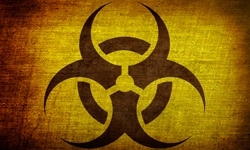
Bioterrorism

Chemical Threats

Community Resilience

Conflict Management and Negotiation

Crisis Communication and Management

Cybersecurity and Cyberterrorism

Ecoterrorism

Emergency Preparedness and Management

Ethnic Conflict and Violence

Foreign Fighters

Geographic Information System (GIS)

Global Security

Group Behavior

Homeland Security Education and Training

Innovation and Technology

International Relations

Islamic State of Iraq and the Levant (ISIL)

Leadership in Violent Extremist Organizations

Left-wing Terrorism

Media and Terrorism

Natural Hazards

Not Terrorism Related

Nuclear Terrorism

Policing Terrorism
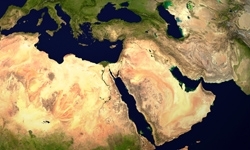
Political Conflict and Violence

Psychology of Terrorism

Public Communications and Warnings

Punishment of Terrorism

Radiological Threats

Red Teaming


Right-wing Terrorism

Risk Management

Scenario Planning and Forecasting

Security Policy

September 11th

Single-issue Terrorism

Social Media

Suicide Attacks

Terrorism and Economics
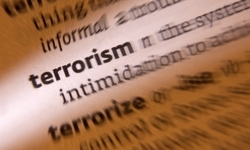
Terrorism Databases and Resources

Terrorism Trends

Terrorist Networks

Threat Assessment

Victims of Disasters

Violence Adoption and Desistance
Weapons and Tactics
Start in the news, media contact.
Deanne Winslett Communications and Transition Manager 301-405-6632 [email protected]
Contact us Online Find an Expert
- Getting PhD thesis help
- Getting occupation therapy dissertation
- Composing a dissertation introduction
- Creating an economics PhD paper
- Looking for an excellent thesis writer
- Criminology PhD paper sample
- Getting a PhD paper sample online
- Buying a well-written dissertation
- Creating a strong dissertation proposal
- Formatting your dissertation
- Writing a winning zoology thesis
- Elements of good dissertation agencies
- A manual on APA paper layouts
- Sample dissertation proposals: tourism
- Crafting a proper dissertation conclusion
- Example dissertation abstracts
- Undergraduate paper writing in history
- Paper help: English literature
- Where to search for dissertation agencies
- Assistance with proposals
- Buying dissertation at low cost
- Concluding a dissertation effectively
- A guide to paper introduction
- The selection of dissertation service
- Outlining a history dissertation proposal
- Samples of undergraduate paper conclusion
- Physical geography proposal hints
- Looking for a writing help agency
- Good topics for a marketing PhD paper
- Business administration thesis ideas
- Looking for strong thesis titles
- The Great Gatsby thesis topics
- Architecture PhD paper topics
- US history dissertation topics
- Ideas for a college law dissertation
- Business management PhD paper titles
- Electronics Engineering thesis questions
- Engineering dissertation prompts
- Dissertation writing ideas: anesthesia
- General surgery paper topic questions
- Marketing dissertation topic suggestions
- Educational leadership: paper topics
- Fresh ideas for a dissertation
- Writing ideas in engineering
- Sports therapy topic suggestions
- Geography dissertation topics
- Interesting ideas on banking
- Education: topic selection
- Topics on global terrorism
- Ecology dissertation ideas
- Questions on wealth management
- Dissertation topics on film-making industry
- Computer network security questions
- Ideas for a marketing dissertation
- Bibliography

List Of 20 Up-To-Date Dissertation Topics About World Terrorism
Paying attention to the intensive outburst of terroristic activities all over the world today, the dissertation on the subject would be extremely topical. In order not to get lost in the overwhelming amount of hot issues, plenty of evidence and various approaches, it’s better to keep in mind some rules of choosing a topic for your survey.
Main Tips on Choosing Your Dissertation Topic Successfully
- Your topic must be scientifically and practically significant.
Although the problem of terrorism itself is highly actual, it matters whether your research will be able to provide essential solutions.
- You must be passionate about the subject you’ve chosen.
The more interest you have towards it, the easier and more effective the whole process would be.
- A topic must be within your range of competence.
Don’t ever choose the one you will fail to manage. Let it be narrow enough to cover it comprehensively.
- You should have strong a database for your research.
In case you hesitate if you will be able to collect the necessary data, better turn your attention to the other topics that lie within your reach.
- Dissertation paper topic must be original.
Check in advance if somebody has performed the same survey before.
A chosen topic must absolutely correspond with your personal scientific interests. As soon as writing a dissertation is not just an assignment but an important step in your scientific career, this point is one of the most crucial ones.
20 Actual and Inspiring Ideas to Consider
- What motivates people to join ISIS?
- The danger of cyber sabotage in today’s world.
- Can patriotic moods enhance terrorism development?
- Comparative analysis of domestic and foreign terrorism.
- Study of world immigration changes caused by recent terror campaigns.
- Evaluation of counter-terrorism methods used in France during the terror attack.
- The efficiency of Twitter blocking in Turkey as an instrument against terrorism.
- The impact of politics in solving the terroristic problem.
- Illegal weapon and drug traffic and its impact on terrorism development.
- Do media influence the communication with terrorists much?
- Top strategies for homeland security under the threat of terrorism.
- State-sponsored terrorism in Pakistan.
- The role women play in terroristic organizations.
- The limits between religious freedom and terrorism.
- Clear international definition of terrorism – does it exist?
- Is ethnic-profiling an effective counter-terrorism method?
- Main transnational terroristic organizations of today.
- The influence of religious matters on terrorism.
- The probability of bioterrorism development.
- Psychological roots of terroristic motivations.
Writing Tips
- Winning law dissertation proposal
- Looking for a quick thesis writer
- Dissertation format: things to remember
- Publishing an undergraduate dissertation
- An approach to PhD dissertation defense
- PhD thesis in Economics: how to write
- Crafting an MBA dissertation
- Writing an undergraduate dissertation
- Searching for dissertation samples
- In search of a thesis writing service
- Hiring a good thesis writer
- Purchasing a thesis: basic tips
- Perfect history thesis
- Purchasing a dissertation: useful advice
- Is it reasonable to use thesis companies?
- Getting dissertation assistance
- Finding dissertation proposal examples
Good Topics
- Great ideas for a pshychology PhD paper
- Ideas for a management dissertation
Common Struggles
- PhD paper defense dress code
- How to finish your PhD paper
Citing Styles
- Making proper PhD paper citations
- MLA PhD paper citing
Copyright © 2013 - 2024, DissertationCooperative.com - Let's solve PhD paper writing struggles together!

Domestic Terrorism
About domestic terrorism, narrow the topic.
- Articles & Videos
- MLA Citation This link opens in a new window
- APA Citation This link opens in a new window

- Is the threat of domestic terrorism exaggerated?
- Does America's violent culture lead to terrorism?
- Does the media exposure promote terrorism by airing their causes?
- Should journalists practice censorship when covering terrorism?
- Should abortion center bombings be considered acts of terrorism?
- Focus on one incident of terrorism: World Trade Center bombing (1993); Oklahoma City bombing (1995); TWA Flight 800 bombing (1996); Atlanta Olympic bombing (1996); the Unabomber (1996); Boston Marathon bombing (2013)
- Next: Library Resources >>
- Last Updated: Feb 6, 2024 12:29 PM
- URL: https://libguides.broward.edu/Domestic_Terrorism
- Bibliography
- More Referencing guides Blog Automated transliteration Relevant bibliographies by topics
- Automated transliteration
- Relevant bibliographies by topics
- Referencing guides
Dissertations / Theses on the topic 'Counter-terrorism'
Create a spot-on reference in apa, mla, chicago, harvard, and other styles.
Consult the top 50 dissertations / theses for your research on the topic 'Counter-terrorism.'
Next to every source in the list of references, there is an 'Add to bibliography' button. Press on it, and we will generate automatically the bibliographic reference to the chosen work in the citation style you need: APA, MLA, Harvard, Chicago, Vancouver, etc.
You can also download the full text of the academic publication as pdf and read online its abstract whenever available in the metadata.
Browse dissertations / theses on a wide variety of disciplines and organise your bibliography correctly.
Tench, Stephen Ashley. "Space-time modelling of terrorism and counter-terrorism." Thesis, University College London (University of London), 2018. http://discovery.ucl.ac.uk/10058705/.
Shan, Jia. "LEGAL REGULATION ON COUNTER-TERRORISM." Doctoral thesis, Università degli studi di Trento, 2021. http://hdl.handle.net/11572/307620.
Shan, Jia. "LEGAL REGULATION ON COUNTER-TERRORISM." Doctoral thesis, Università degli studi di Trento, 2021. http://hdl.handle.net/11572/307620.
Ampofo, Lawrence. "Terrorism 3.0 : understanding perceptions of technology, terrorism and counter-terrorism in Spain." Thesis, Royal Holloway, University of London, 2011. http://repository.royalholloway.ac.uk/items/fd658676-8ed2-9d0c-70e2-72e7fdd8df2f/9/.
Presnell, J. Ryan. "Local Law Enforcement's Counter Terrorism Capabilities." Digital Commons @ East Tennessee State University, 2008. https://dc.etsu.edu/etd/2014.
Kihara, Evonne W. "Impact of terrorism and counter-terrorism on the right to education." Diss., University of Pretoria, 2011. http://hdl.handle.net/2263/16771.
Smith, Jerry D. "Israel's counter-terrorism strategy and its effectiveness /." Monterey, Calif. : Springfield, Va. : Naval Postgraduate School ; Available from National Technical Information Service, 2005. http://library.nps.navy.mil/uhtbin/hyperion/05Mar%5FSmith.pdf.
Jansen, Pia Therese. "The consequences of Israel's counter terrorism policy." Thesis, St Andrews, 2008. http://hdl.handle.net/10023/439.
Mackenzie, Alexander. "The external dimension of EU counter-terrorism." Thesis, University of Salford, 2012. http://usir.salford.ac.uk/26787/.
Kowalik, Bartosz Andrzej Warwas. "Islamic terrorism and U.S. counter terrorist policy /." Title page, table of contents and conclusion only, 2002. http://web4.library.adelaide.edu.au/theses/09AR/09ark885.pdf.
al-Marri, Jamal M. K. "A counter-terrorism strategy for Arab states." Thesis, University of Liverpool, 1999. http://ethos.bl.uk/OrderDetails.do?uin=uk.bl.ethos.367658.
Hartmann, Jacques. "Transnational counter-terrorism cooperation and world order." Thesis, University of Cambridge, 2012. http://ethos.bl.uk/OrderDetails.do?uin=uk.bl.ethos.609981.
Wood, Molly. "Contemporary U.S. Counter-terrorism Strategy toward Somalia." Master's thesis, University of Cape Town, 2018. http://hdl.handle.net/11427/29846.
Smith, Jerry D. "The Effectiveness of Israel's counter-terrorism strategy." Thesis, Monterey California. Naval Postgraduate School, 2005. http://hdl.handle.net/10945/2251.
Kihara, Ivy Evonne Wanjiku. "The Impact of Terrorism and Counter-Terrorism on the Right to Education." Thesis, University of the Western Cape, 2010. http://etd.uwc.ac.za/index.php?module=etd&action=viewtitle&id=gen8Srv25Nme4_1099_1318496212.
Warnes, R. J. "Mark 1 counter-terrorist : the significance of 'human factors' in effective counter-terrorism." Thesis, University of Surrey, 2016. http://epubs.surrey.ac.uk/812555/.
Hadjimatheou, Katerina. "Ethnic profiling in counter-terrorism : justice in practice." Thesis, University of Essex, 2009. http://ethos.bl.uk/OrderDetails.do?uin=uk.bl.ethos.502174.
Nenov, Svetoslav. "Biopolitics, counter-terrorism and law after 9/11." Thesis, University of Manchester, 2013. https://www.research.manchester.ac.uk/portal/en/theses/biopolitics-counterterrorism-and-law-after-911(02e0d8bc-3c81-4731-bf06-e178de99a594).html.
Le, Sage André Louis. "Somalia and the 'war on terrorism' : political Islamic movements & US counter-terrorism efforts." Thesis, University of Cambridge, 2004. https://www.repository.cam.ac.uk/handle/1810/273389.
Gocer, Ilyas. "Another approach to counter-terrorism: terrorists with guilty consciences." Thesis, Monterey, California. Naval Postgraduate School, 2012. http://hdl.handle.net/10945/27835.
Korte, Raven Nicole. "Is counter terrorism counterproductive? the case of Northern Ireland /." College Park, Md. : University of Maryland, 2005. http://hdl.handle.net/1903/2932.
AlMaawi, Mohammad. "Counter-terrorism in Saudi Arabia : narratives, practices and challenges." Thesis, University of Kent, 2016. https://kar.kent.ac.uk/54562/.
Fulton, Wayne. "Intelligence and the "War against Terrorism" multilateral counter-terrorism policies implemented post-September 11 : an examination of counter-terrorism policy responses adopted on an international level post-September 11 /." Connect to this title online, 2004. http://146.141.35.251/theses/available/etd-11122005-202125/.
Pienaar, Lyle Eugene. "International terrorism in Africa 1990-2004 extent and counter-measures /." Pretoria : [s.n.], 2008. http://upetd.up.ac.za/thesis/available/etd-11192008-161454/.
Kirkwood, Lea T. "The European Union counter-terrorism strategy origins, problems, and prospects." Thesis, Monterey, Calif. : Naval Postgraduate School, 2006. http://library.nps.navy.mil.uhtbin/hyperion/%5FKirkwood.pdf.
Schachter, Jonathan M. "Theeye of the believer : psychological influences on counter-terrorism policy-making /." Santa Monica, Calif. : RAND, 2002. http://www.loc.gov/catdir/toc/fy0711/2003271989.html.
Hansén, Dan. "Crisis and Perspectives on Policy Change : Swedish Counter-terrorism Policymaking." Doctoral thesis, Försvarshögskolan, CRISMART (Nationellt Centrum för Krishanteringsstudier), 2007. http://urn.kb.se/resolve?urn=urn:nbn:se:fhs:diva-2023.
Murphy, Patrick. "Securing the everyday city : the emerging geographies of counter-terrorism." Thesis, Durham University, 2012. http://etheses.dur.ac.uk/3506/.
Mylonaki, Emmanouela-Anastasia. "The contemporary counter-terrorism model of inter-state co-operation." Thesis, University of Bristol, 2007. http://hdl.handle.net/1983/349e9ca2-a26d-4315-b584-0adddc2620a3.
Olamide, Ibrahim Nurudeen. "Paved with good intention? The African Union counter terrorism agenda." Diss., University of Pretoria, 2012. http://hdl.handle.net/2263/36787.
Arfvén, Gustav. "Europol & the Creation of the European Counter Terrorism Centre." Thesis, Försvarshögskolan, 2017. http://urn.kb.se/resolve?urn=urn:nbn:se:fhs:diva-6990.
Lelewel, Stefan. "International intelligence cooperation in counter-terrorism causes, complications and consequences /." Connect to Electronic Thesis (CONTENTdm), 2009. http://worldcat.org/oclc/488634885/viewonline.
Romaniuk, Scott. "Under Siege: Counter-Terrorism Policy and Civil Society in Hungary." Doctoral thesis, Università degli studi di Trento, 2018. https://hdl.handle.net/11572/368206.
Gjiknuri, Damian. "Albania's counter-terrorism policy options : finding a strategy of common sense /." Thesis, Monterey, Calif. : Springfield, Va. : Naval Postgraduate School ; Available from National Technical Information Service, 2004. http://library.nps.navy.mil/uhtbin/hyperion/04Jun%5FGjiknuri.pdf.
Bekele, Melhik A. "Counter-terrorism and the suppression of political pluralism : an examination of the anti-terrorism proclamation of Ethiopia." Diss., University of Pretoria, 2011. http://hdl.handle.net/2263/16747.
Alati, Daniel. "Domestic counter-terrorism in a global context : a comparison of legal and political structures and cultures in Canada and the United Kingdom's counter-terrorism policy-making." Thesis, University of Oxford, 2014. http://ora.ox.ac.uk/objects/uuid:2a37e08e-8463-4000-9fdc-389072bc5960.
Sproat, Peter Alan. "An investigation of the concept of state terrorism." Thesis, University of Newcastle Upon Tyne, 1997. http://hdl.handle.net/10443/435.
Hasler, John. "Stichwort: Der Ausschuß zur Bekämpfung des Terrorismus - Counter Terrorism Committee (CTC)." Universität Potsdam, 2004. http://opus.kobv.de/ubp/volltexte/2011/5564/.
Latimer, William Scott. "What can the United States learn from India to counter terrorism." Thesis, Monterey, Calif. : Springfield, Va. : Naval Postgraduate School ; Available from National Technical Information Service, 2004. http://library.nps.navy.mil/uhtbin/hyperion/04Mar%5FLatimer.pdf.
Bowie, Neil Gordon. "The application of database technologies to the study of terrorism and counter-terrorism : a post 9/11 analysis." Thesis, University of St Andrews, 2012. http://hdl.handle.net/10023/3641.
Vorsina, Margarita. "Essays on terrorism: its effects on subjective wellbeing, its socio-economic drivers, and the related attitudes." Thesis, Griffith University, 2017. http://hdl.handle.net/10072/373030.
Hernández, Guillermo. "Unveiling the Paradoxes of Current Measures to Counter the Financing of Terrorism." St. Gallen, 2008. http://www.biblio.unisg.ch/org/biblio/edoc.nsf/wwwDisplayIdentifier/07610926001/$FILE/07610926001.pdf.
Sabir, Rizwaan Sabir. "Understanding counter-terrorism policy and practice in the UK since 9/11." Thesis, University of Bath, 2014. https://ethos.bl.uk/OrderDetails.do?uin=uk.bl.ethos.635553.
Schneider, Kimberly Ann. "Counter-Terrorism Cooperation in the European Union: A Hybrid Case of Integration." Miami University Honors Theses / OhioLINK, 2007. http://rave.ohiolink.edu/etdc/view?acc_num=muhonors1178151333.
Huang, Hsiao-Wen, and 黃筱雯. "EU counter-terrorism policy: study of the counter-terrorism coordinator." Thesis, 2019. http://ndltd.ncl.edu.tw/handle/h4xp9j.
Wang, Peng-Cheng, and 王鵬程. "China’s Counter-Terrorism Strategy under U.S Counter-Terrorism Strategy (2001-2014)." Thesis, 2015. http://ndltd.ncl.edu.tw/handle/cwpbnd.
Kao, Jui-feng, and 高瑞豐. "United Kingdoms counter terrorism." Thesis, 2005. http://ndltd.ncl.edu.tw/handle/77675356098946768454.
Liu, Yi-Chang, and 劉益彰. "China''s counter-terrorism strategy." Thesis, 2011. http://ndltd.ncl.edu.tw/handle/10089894564368393325.
Hsu, Chia-Hui, and 徐嘉徽. "Japan\'s Counter-Terrorism Policy." Thesis, 2019. http://ndltd.ncl.edu.tw/handle/3jrv7m.
"Local Law Enforcementâs Counter Terrorism Capabilities." East Tennessee State University, 2008. http://etd-submit.etsu.edu/etd/theses/available/etd-1006108-155232/.

- UF Libraries
- Guides @ UF
- Humanities & Social Sciences
Stochastic Terrorism
- Find Information
- What is Stochastic Terrorism?
Suggested Reading
The following articles, book chapters, and conference papers contain peer-reviewed literature about stochastic terrorism and related topics:
- "The Rise of Political Violence in the United States." Journal of Democracy. R. Kleinfeld (2021). "...Recent alterations to violent groups in the United States and to the composition of the two main political parties have created a latent force for violence that can be 1) triggered by a variety of social events that touch on a number of interrelated identities; or 2) purposefully ignited for partisan political purposes..."
- "Weaponization of Disgust." Scientific American. B. Nelson (2023). "...At its core, stochastic terrorism exploits one of the strongest and most complicated emotions: disgust...political extremists create dangerous new strains of contempt and hatred..."
- "Corrupt Systems: Understanding Trumpian Populism." Book chapter in Resurgence of Global Populism. K. E. Messina (2023). "...sensationalized claims by Trump represent a sliver of examples of how Trump summoned a mob to desecrate the Capitol building where five people died. This is stochastic terrorism as practiced by the president of the United States..."
- "Swallowing the black pill: Involuntary celibates’ (Incels) anti-feminism within digital society." International Journal for Crime, Justice and Social Democracy. A. Lindsay (2022). "...the black pill produces a form of 'stochastic terrorism' in which users interpret its spectrum of beliefs to enact harms from online gender-based hate speech through terrorist violence in the offline world..."
- "Stochastic Terrorism: Mass Media Escalation Against Victim Groups as a Radicalization Platform for Terrorist Individual Perpetrators?" book chapter in Routledge Handbook of Transnational Terrorism. K. Schwarz (2023). "...This chapter takes a closer look at the role of the Internet, particularly for violent right-wing extremists. It also examines the question why only a few forums are used by terrorists to announce their attacks and distribute their propaganda. Even though most right-wing terrorists in recent years planned and committed their acts alone, it is evident that their target audience also takes an active role in the distribution of their propaganda and that this is anticipated by the perpetrators..."
- "AI and Stochastic Terrorism - Should it be done?" conference paper at the 2022 IEEE International Symposium on Software Reliability Engineering Workshops (ISSREW). B. Kemper (2022). "...The use of Artificial Intelligence and Machine Learning technology may seem to be the tools needed to combat media-inspired "lone wolf attacks" by implementing the concept of "stochastic terrorism," targeting harmful media influences. Machine Learning is in current use to sort through social media data to assess hate speech. Artificial Intelligence is in current use to interpret the data and trends processed by Machine Learning for tasks such as finding criminal networks. The question becomes "can stochastic terrorism be proven" and "should this be implemented..."
Suggested databases to search for academic literature on stochastic terrorism and related topics.
- Worldwide Political Science Abstracts This link opens in a new window ProQuest
- Criminal Justice Abstracts This link opens in a new window Ebsco
- Academic Search Premier This link opens in a new window Ebsco
- Project MUSE - Standard Collection This link opens in a new window
- Sociological Abstracts This link opens in a new window Covers international literature of sociology, social work, and related disciplines with abstracting and indexing of articles, books, book chapters, dissertations, and more.
The following journals contain peer-reviewed literature about stochastic terrorism and related topics:
- Risk Analysis
- Terrorism and Political Violence
- Studies in Conflict and Terrorism
- Decision Analysis
- Journal of Conflict Resolution
- << Previous: What is Stochastic Terrorism?
- Last Updated: May 15, 2024 2:00 PM
- URL: https://guides.uflib.ufl.edu/stochastic_terrorism


An official website of the United States government, Department of Justice.
Here's how you know
Official websites use .gov A .gov website belongs to an official government organization in the United States.
Secure .gov websites use HTTPS A lock ( Lock A locked padlock ) or https:// means you’ve safely connected to the .gov website. Share sensitive information only on official, secure websites.
NCJRS Virtual Library
Evaluating and assessing terrorism prevention programs: what research sponsored by the national institute of justice tells us.
This document analyzes lessons and insights gleaned from terrorism prevention programs, and discusses their implications for future assessment and evaluation processes.
This report presents several projects that provide insights into National Institute of Justice (NIJ)-sponsored evaluations of terrorism prevention programs implemented across different populations, focusing on the process of program evaluation as well as evaluation findings. Important lessons that emerged from the research underscore the importance of gaining community buy-in and assuring program relevance for participants before implementing the programs; program benefits can extend beyond meeting terrorism prevention goals and can be carried out within public health or community resilience initiatives; and evaluative efforts in general face challenges that limit their ability to assess the impact of a program, its adaptability to other places or communities, and the veracity of evaluation findings. The evaluation findings suggest that several activities should be considered when addressing challenges, including the implementation of formative evaluations or evaluability assessments, strategies to limit participant attrition and thus maintaining appropriate sample sizes, and using control or comparison groups as part of the assessment. The report also discusses important gaps and considerations that should be incorporated into future programmatic and evaluation decisions, and suggests that future programmatic, research, and policy-oriented activities may explore and test efforts aimed at incorporating terrorism prevention activities with a broader portfolio of public health and violence reduction-focused efforts.
Additional Details
810 Seventh Street NW , Washington , DC 20531 , United States
Related Topics
United States Institute of Peace
Home ▶ Publications
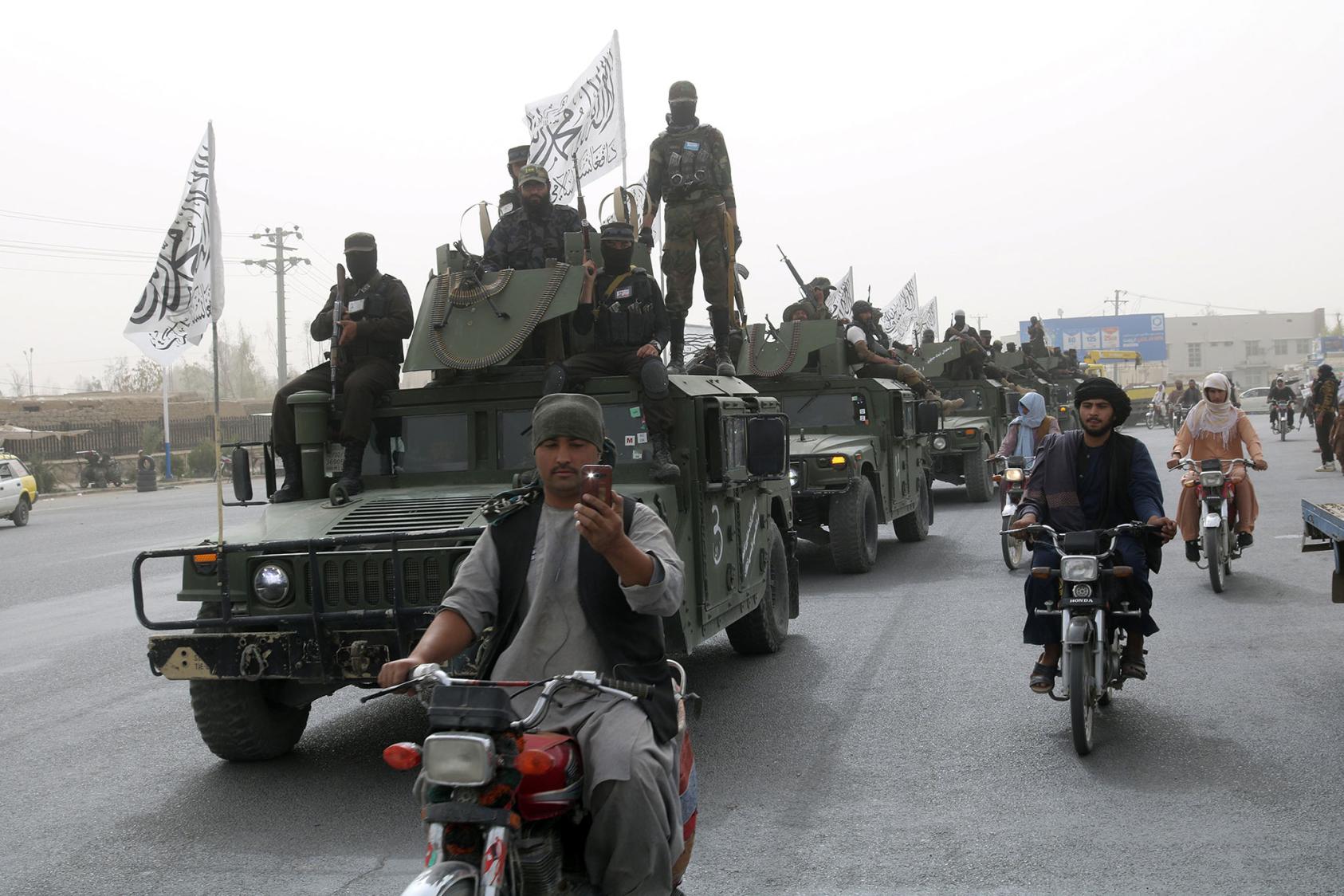
Senior Study Group on Counterterrorism in Afghanistan and Pakistan: Final Report
Tuesday, May 14, 2024
/ READ TIME: 11 minutes
By: USIP Senior Study Group on Counterterrorism in Afghanistan and Pakistan
Executive Summary
When announcing the US withdrawal from Afghanistan in April 2021, President Joe Biden identified counterterrorism in Afghanistan and Pakistan as an enduring and critical US national security interest. This priority became even more pronounced after the Taliban’s return to power in August 2021, the discovery of al-Qaeda’s leader Ayman al-Zawahiri in Kabul less than a year later, and the increasing threat of the Islamic State of Khorasan (ISIS-K) from Afghanistan. However, owing to the escalating pressures of strategic competition with China and Russia, counterterrorism has significantly dropped in importance in the policy agenda. Following 9/11, the national security policy pendulum swung to an overwhelming focus on counterterrorism, but since the US withdrawal from Afghanistan, it appears to have swung in the opposite direction.
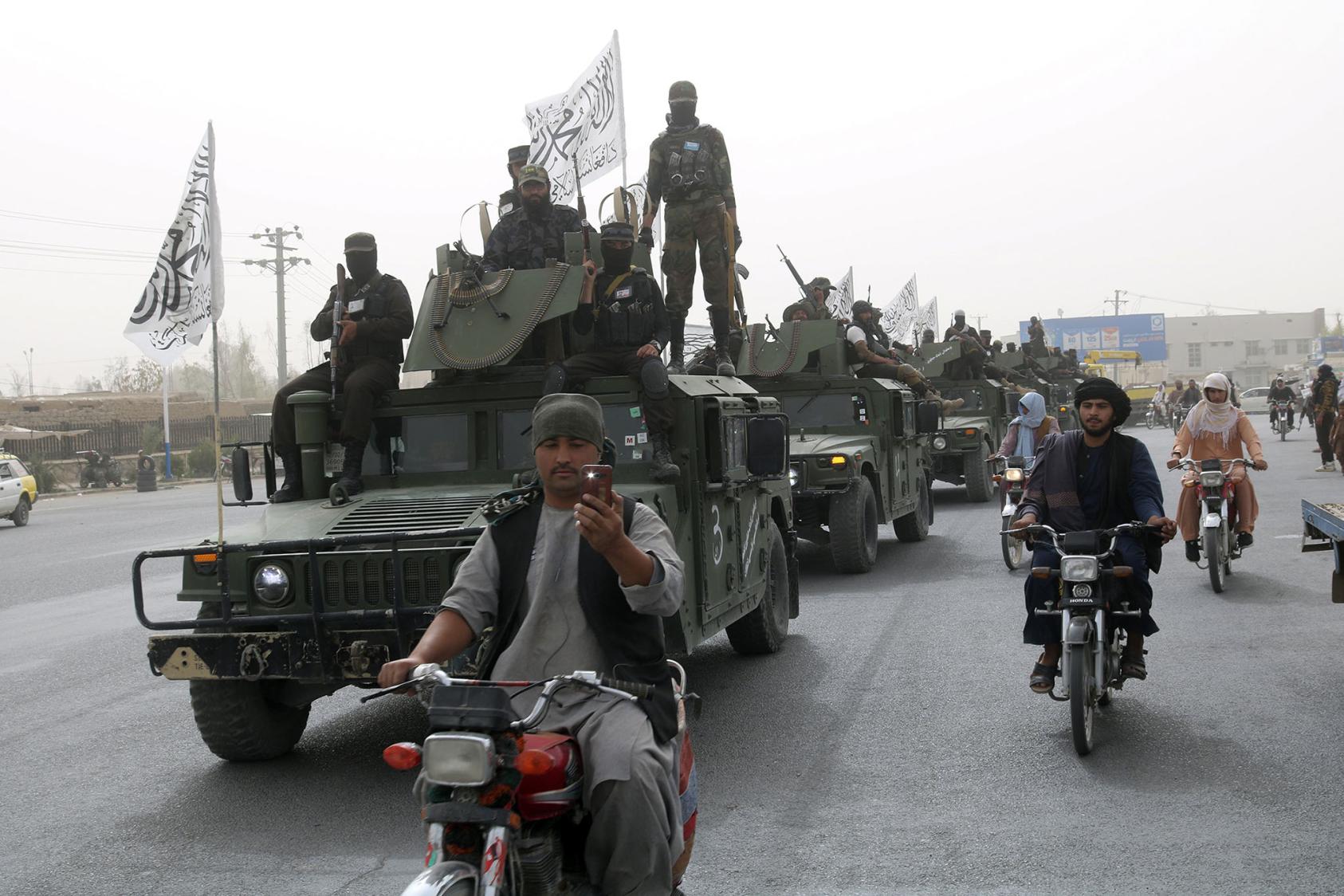
In 2022, the United States Institute of Peace convened the Senior Study Group on Counterterrorism in Afghanistan and Pakistan to examine the counterterrorism challenge from the region in light of the US withdrawal and growing strategic competition. The study group is a bipartisan group of experts, bringing a range of policy, scholarly, operational, and analytical experience related to terrorism, counterterrorism, and South Asia policy issues.
In meetings from 2022 to 2023, the study group assessed the terrorism threat from Afghanistan and Pakistan and its bearing on US interests, as well as reflected on lessons from efforts to mitigate terrorism risks over the past 20 years. Members then examined what the components of a well-defined and sustainable counterterrorism strategy for the region could be to effectively mitigate existing threats, especially those directed against the US homeland and its allies and partners.
The study group came to the following two major conclusions on the stakes and direction of the terrorist threat and identified options for a new strategy in light of the group’s findings.
1. Rather than considering counterterrorism as an unwelcome distraction from strategic competition, policymakers could recalibrate their focus on counterterrorism to mitigate threats and shield the strategic competition agenda.
Some policymakers perceive counterterrorism efforts, particularly in Afghanistan and Pakistan, as a distraction from the intensifying strategic competition with China and Russia. However, terrorist groups in Afghanistan, and to a lesser extent in Pakistan, still harbor intentions and possess growing capabilities to target the United States and its interests. If terrorists succeeded in making those intentions a reality, it would not only result in the tragic loss of lives but also have significant adverse effects on America’s strategic competition agenda.
For one, a mass-casualty attack would exert significant pressure on policymakers to respond assertively, which would divert resources, leadership attention, and political capital from the current focus on strategic competition. The American public still expects the US government to take necessary measures to prevent terrorist attacks against Americans both at home and abroad.
Terrorist attacks against the United States and its allies and partners, particularly attacks originating from Afghanistan and Pakistan, would also undermine America’s alliances. Amid the 2021 Afghanistan withdrawal, Washington assured allies and partners that the United States would retain the capability to mitigate terrorist threats from Afghanistan following the military pullout. Failure to prevent attacks against the US homeland, regional interests, and allies and major partners would tarnish America’s credibility and reputation.
Additionally, terrorist attacks from Afghanistan and Pakistan against a critical partner such as India could spark dangerous regional crises. A major attack in an Indian city by a terrorist group, for example, could trigger an India-Pakistan military standoff with the risk of escalating to a nuclear exchange. Such a crisis would also significantly distract India from focusing on the challenge presented by China.
Given these stakes, the United States could consider recalibrating the focus on counterterrorism to safeguard the strategic competition agenda. Preventive investment in counterterrorism will enable a sustained focus on strategic competition.
2. Terrorist threats to US interests from Afghanistan and Pakistan are steadily rising—and Afghanistan presents growing opportunities for terrorist groups compared to the period before the US withdrawal from Afghanistan.
Terrorist groups in Afghanistan and Pakistan are persistent, and some are gaining strength in ways that threaten US and allied interests as well as regional security. The post-US withdrawal environment in Afghanistan offers terrorist groups a range of new opportunities for regrouping, plotting, and collaborating with one another. These groups are positioned to tap into the vast pool of trained militant personnel in Afghanistan and to some extent in Pakistan. The groups also benefit from the reduced US monitoring and targeting capabilities in the two countries.
ISIS-K presents a rising threat with reach beyond the immediate region, greater than during the pre-withdrawal period. The Tehreek-e-Taliban Pakistan (TTP) terrorist group has also returned as a regional security threat. While the worst-case scenario concerning al-Qaeda’s reconstitution in Afghanistan has not materialized, that group and its South Asia affiliate continue to maintain ties with and receive support from the Taliban and to call for attacks against US citizens, allies, and partners (including India) and US interests.
The Taliban continue to support terrorist groups in Afghanistan. Despite commitments to the United States and regional countries to prevent Afghanistan from becoming a terrorist haven, the Taliban’s decision to host al-Qaeda chief Ayman al-Zawahiri in Kabul and their continued provision of sanctuary and material support to terrorist groups such as the TTP suggest that the Taliban are unlikely to distance themselves in meaningful ways from their allied terrorists. The Taliban target ISIS-K and have substantially reduced the group’s violence in the country, yet in the past two years, ISIS-K has plotted attacks against regional actors and US interests, which is particularly concerning. It is not clear if the Taliban’s crackdown can alter ISIS-K’s external attack ambitions and sufficiently weaken its capabilities. The Taliban’s educational policies, such as the expansion of madrassas in the country and a revised curriculum promoting extremist ideologies, also present a counterterrorism challenge.
Terrorist groups are also attempting to destabilize Pakistan. The TTP—a group that has killed Americans and plotted attacks against the US homeland—is imposing significant losses in Pakistan from its sanctuary in Afghanistan; and, going forward, it may become a bigger threat for Pakistan and the region. At the same time, Pakistan historically has maintained relationships with anti-India terrorist groups, although it has restrained them in recent years. As India-Pakistan tensions remain high, violence by such groups against India could trigger Indian military action against Pakistan and, in turn, risk a regional war between two nuclear-armed states.
Revitalizing the US Counterterrorism Strategy: Main Policy Options
The United States can implement a new counterterrorism strategy for Afghanistan and Pakistan to address the rising terrorism threats from the region. This would not require the expansive counterterrorism posture of the past or a dilution of policymaker focus on strategic competition. The study group believes that it is possible to embed a counterterrorism approach with limited aims in the current strategic competition framework.
The group proposes the aims of deterring and, when necessary, disrupting terrorist threats in Afghanistan and Pakistan that target the United States and its interests overseas as well as its allies and major partners. The study group also proposes that Washington improve its preparedness to respond judiciously to a major terrorist attack; such preparation would help minimize the diversion of resources, leadership attention, and political capital from the focus on strategic competition. These priorities would create a sustainable end state for managing the terrorist threats from the region, in contrast to broad objectives of the past, such as the defeat and large-scale degradation of terrorist groups.
The study group’s main options for policymakers to consider include the following:
Continue to publicly pressure the Taliban to mitigate terrorist threats while maintaining communication channels for counterterrorism exchanges rather than adopting a cooperative approach with open-ended incentives or a pressure campaign that isolates the Taliban entirely.
Key steps to consider:
- Developing a public reporting mechanism to document and disseminate the Taliban’s compliance with the counterterrorism terms outlined in the 2020 Doha agreement between the United States and the Taliban.
- Holding a meeting of regional countries to codify the Taliban’s counterterrorism commitments to each country.
- Adding to the federal terrorism watch list, before sanctioning (under US Executive Order 13324), Taliban leaders and personnel assisting terrorists in the country.
- Building up dedicated diplomatic and intelligence counterterrorism channels with the Taliban to convey concerns and explore the possibility of exchanges on shared threats.
Improve military and intelligence postures to deter and disrupt terrorism threats against the United States and its interests, including those that the Taliban are unwilling or unable to contain in Afghanistan.
Key steps to consider:
- Making policies on military action against terrorist threats in Afghanistan—policies tightened by the Biden administration through a 2022 presidential policy memorandum that governs direct action counterterrorism operations outside areas of active hostilities—less restrictive, but not to the level of a conventional war zone or the level that was available to military commanders before the withdrawal from Afghanistan.
- Increasing the overseas operations and security cooperation resources of US Central Command (CENTCOM) by providing additional intelligence, surveillance, and reconnaissance (ISR) aircraft, as well as long-endurance alternate airborne ISR capabilities; and increasing counterterrorism-specific analytical capabilities consisting of analysts, linguists, and screeners and offensive cyber capabilities for over-the-horizon operations.
- Maintaining intelligence collection on Afghanistan and Pakistan at an appropriate priority level as part of the National Intelligence Priorities Framework and the Office of the Director of National Intelligence’s reporting about critical intentions and warnings on threats and operations.
- Expanding the US Department of State’s Rewards for Justice program for Afghanistan and Pakistan by increasing the reward money for those currently listed as well as adding ISIS-K and al-Qaeda operatives currently not covered to generate leads.
Through appropriate legal authorities, leverage an enhanced military and intelligence posture to target terrorist groups while accounting for the risk of retaliatory actions and minimizing civilian harm.
- Targeting with lethal action in Afghanistan those groups that are planning or involved in plots against the US homeland and interests.
- Employing shows of force through drones against Taliban leaders and personnel assisting terrorist groups such as al-Qaeda.
- Carrying out cyber intrusions to disrupt al-Qaeda’s and ISIS-K’s propaganda and communications.
- After targeting a Taliban-allied terrorist leader, considering declassifying intelligence—insofar as it is practical—on the presence and identity of targeted terrorists to make the case that US actions were justified; this, in turn, could exert pressure on the Taliban to distance from terrorist groups and reduce the risk of retaliation.
- To minimize the risk of civilian harm, controlling the targeting tempo of military operations, keeping it in line with available intelligence resources; to detect civilians in the targeting process and check confirmation bias, the US Department of Defense could create well-resourced “Civilian Harm Red Teams,” or groups of analysts that question assumptions and interpretations of information with an eye toward protecting against civilian harm.
- Making what qualifies as legal authorities for counterterrorism operations more transparent by clarifying the executive branch’s interpretation of the 2001 Authorization for the Use of Military Force in Response to the 9/11 Attacks and Article II of the Constitution as they apply to Afghanistan and Pakistan.
Improve the counterterrorism relationship with Pakistan while taking diplomatic steps to prevent a terrorism-triggered crisis in South Asia.
- Offering counterterrorism-specific security assistance and intelligence to Pakistan to (1) reduce the TTP’s threat as well as to obtain Pakistani assistance on top US counterterrorism concerns, (2) secure long-term airspace access for operations in Afghanistan, and (3) leverage reliable access in Pakistan in the event of a terrorist attack contingency. Such assistance should be calibrated to reduce the likelihood that Pakistan would find the assistance useful in attacking India.
- Communicating to Pakistani leaders that if terrorists based in or backed by Pakistan carry out attacks in India, there will be serious negative repercussions for bilateral ties.
- Offering assistance to promote peaceful coexistence among at-risk youth; to improve social cohesion by expanding the acceptance of religious, social, and political diversity; and to deradicalize underage children.
Prepare contingency plans for handling terrorist attacks in the homeland and overseas against major allies and partners such as India.
- Improving intelligence collection and analysis capabilities through the National Intelligence Priorities Framework for reliably attributing responsibility for terrorist attacks from Afghanistan and Pakistan.
- Providing stepped-up travel warnings to Americans exposed to threats while traveling and living in the region.
- Improving US leverage in Central Asia and Pakistan through assistance programs with the aim of securing emergency basing and access options for military operations.
- Enhancing the Indian government’s confidence in the US government’s process for attributing responsibility for terrorist attacks through intelligence, investigatory exchanges, and crisis war games; and preparing US policymakers for terrorism-triggered crisis management in South Asia through regular tabletop exercises.
By implementing these measures, policymakers could better safeguard US interests in Afghanistan and Pakistan, while preserving the overall focus on strategic competition.
The views expressed in this publication are those of the author(s).
PUBLICATION TYPE: Report
A .gov website belongs to an official government organization in the United States.
A lock ( ) or https:// means you've safely connected to the .gov website. Share sensitive information only on official, secure websites.
- About PHIFP
- What Fellows Do
- Promotion & Recruitment Tools
- Request Program Services and Support
Fellow Eligibility & Requirements
- Applicants should read this page carefully to ensure they meet all eligibility requirements.
- Details are provided for the education, research, relocation, and citizenship requirements.
Interested candidates must meet the eligibility requirements to apply for PHIFP.
Eligibility
Doctoral level candidates.
All doctoral candidates must have a doctoral degree (PhD, MD, PharmD, DrPH) from an accredited academic institution in one of the following:
- Public health, medicine, healthcare/health services research.
- Computer science, data science, or medical/public health informatics.
- Statistics or epidemiology.
- Engineering.
- Operations research.
Master's level candidates
All master's level candidates must have a master's degree (MPH, MS, MSc) from an accredited academic institution as well as at least one year of documented experience in one of the following:
PHIFP applicants should document any research or evaluation experience that they completed during or after their academic training.
Acceptable experience includes publications, thesis writing and defense, poster presentations, and/or a research or evaluation proposal.
Accepted fellows must relocate to programs at CDC locations. Some assignments may also occur in other federal agencies, as well as state and local health departments.
Citizenship
Applicants must verify that they are not a citizen of a country designated as a state sponsor of terrorism per this US Department of State website: State Sponsors of Terrorism .
Non-U.S. citizens must be legal permanent residents or eligible for J1, TN, H-1B, or OPT-EAD (STEM Extension) visas before the program's start date. CDC's Human Resource Office/Immigration Office will consult with all non-US citizen candidates to identify the most appropriate work authorization needed to complete the fellowship program requirements.
- Public Health Infrastructure Center
- Division of Workforce Development
Public Health Informatics Fellowship Program (PHIFP)
The Public Health Informatics Fellowship Program (PHIFP) is a 2-year paid fellowship to apply information science and technology to the practice of public health.
- Peoplefinder
- Schar School of Policy and Government

Two Universities, One Class: How Washington Really Works Returns in Fall
In this story, request schar school program information, learn more about the schar school.

A one-of-a-kind government course with two universities sharing teaching duties from a classroom with a view of the Capitol is returning for the fall 2024 semester. It takes on significant resonance in the run-up to the November presidential election.
How Washington Really Works , aka GOVT 467, promises to unravel the complexities of political maneuvering and policymaking by bringing high-profile practitioners into the classroom for frank conversations with students from George Mason University and the University of Pennsylvania. Students also experience behind-the-scenes tours of government landmarks.
The course is once again taught by George Mason Robinson Professor of Public Policy Steven Pearlstein , who won a Pulitzer Prize as an economics columnist for the Washington Post , and Zeke Emmanuel, Penn’s vice president for global initiatives former healthcare advisor to President Obama. All that and lunch with each session.
The course is open to Schar School of Policy and Government junior and senior government majors and public policy graduate students and will meet Fridays beginning in late August at Penn’s Biden Center for Diplomacy and Global Engagement on Capitol Hill.
The new semester will look at six case studies in an exploration of modern American policy debates, politics, and institutional dynamics, with a particular focus on the personalities, motivations, and ambitions of elected leaders. The role of interest groups, think tanks, and media will also be examined.
Field trips this year include visits to the Capitol, the Supreme Court, and the National Air and Space Museum. Class topics include the Cuba Missile Crisis, the nomination of Clarence Thomas to the Supreme Court, Clinton-era welfare reform, poverty in America, tech regulation, China policy, the passage of Obamacare, and other landmark issues.
The course “introduced me to the research and discussion side of policy-making that I really hadn’t seen yet at the time of me taking this class,” said Joe Szymanski, who graduated with a bachelor of science degree in public administration last year from the Schar School. He is now a communications coordinator for the Pennsylvania House of Representatives.
Of all the tasks students were asked, “putting together a policy proposal was a genuine challenge, and one that I had no regrets taking on,” he said.
Last year’s guest speakers, he said, were “from a wide variety, including government bureaucrats and insiders to officials of other nations. Everyone that was brought in provided an interesting story or a topic to discuss.”
Those speakers included Supreme Court Justice Stephen Breyer, Deputy National Security Advisor Jon Finer, ambassador from Jordan Dina Kawar, historian Michael Beschloss, and U.S. Rep. Rosa DeLauro (D-CONN).
Szymanski said he would recommend the course to those serious about how Washington works.
“One of the things that’s helped me a ton throughout my college years and my recent professional career has been saying yes to any and all opportunities given to me,” he said. “This is an opportunity for you. Say yes to it.”
Tragic News – The Passing of Chris Edley, Visionary and Beloved Dean

- Share article on Facebook
- Share article on Twitter
- Share article on LinkedIn
- Email article
Message from Dean Erwin Chemerinsky, May 10, 2024:
Dear Berkeley Law Community,
It is with a very heavy heart that I am writing to inform you that our beloved colleague and former dean Chris Edley died on Friday morning.
Chris had an amazing life and career, including being a transformative dean for Berkeley Law.
Chris graduated from Swarthmore College and the Harvard School of Public Policy and Harvard Law School. He then had an exemplary career in academia and in public service.
Chris spent 23 years as a professor at Harvard Law School, including co-founding the Harvard Civil Rights Project, before coming to Berkeley Law as dean in 2004. He served as dean until 2013. As dean, he made an enormous positive difference in every aspect of the law school, from the hiring of many terrific faculty, to his initiative to build the south addition (with the library and classrooms and Café Zeb), to dramatically increasing support for public interest grants for students, to the creation of many centers.
Chris served in White House policy and budget positions under Presidents Jimmy Carter and Bill Clinton. Chris also held senior positions in five presidential campaigns: policy director for Michael Dukakis (1988); and senior policy adviser for Al Gore (2000), Howard Dean (2004), Barack Obama (2008), and Hillary Clinton (2016). In 1993, he was a senior economic adviser in the Clinton Presidential Transition, responsible for housing and regulation of financial institutions. In 2008, he was a board member for the Obama presidential transition, with general responsibility for healthcare, education, and immigration. In 1993, he was a senior economic adviser in the Clinton Presidential Transition, responsible for housing and regulation of financial institutions. In 2008, he was a board member for the Obama presidential transition, with general responsibility for healthcare, education, and immigration. From 2011-2013, he co-chaired the congressionally chartered National Commission on Education Equity and Excellence.
Chris was a fellow or member of the American Academy of Arts & Sciences; the National Academy of Public Administration; the Council on Foreign Relations; the American Law Institute; the Advisory Board of the Hamilton Project, the Brookings Institution; and the board of Inequality Media. He is a National Associate of the National Research Council, the operating arm of the National Academies of Science, for which he chaired a committee to evaluate NAEP performance standards, and a committee to design a national system of education equity indicators.
Since completing his deanship, he has served the Law School and the campus in countless ways, including recently serving for two years as the Interim Dean of the School of Education. Chris and Maria Echaveste directed the Opportunity Institute.
Chris and I were law school classmates. He has been a dear friend and has provided me invaluable wisdom and support in my years as a dean. I know I speak for all of us in saying how terribly much we will miss him.
I will keep you posted of plans for memorials.

IMAGES
VIDEO
COMMENTS
Conducting research on terrorism is an essential aspect of a student's dissertation and understanding of terrorism-related topics. In order to develop a comprehensive understanding of this complex field, students should dedicate time to researching the phenomenon of terrorism and its implications for national security.
PERSPECTIVES ON TERRORISM Volume 14, Issue 1 60+ Full-Text Academic Theses (Ph.D. and M.A.) on Terrorism, Violent Extremism, and Nationalism written in English between 2000 and 2020 Compiled and selected by Brody McDonald Abstract: This bibliography contains Doctoral Dissertations (Ph.D.) and Master Theses (M.A.) on issues relating
Introduction The Terrorism Research Initiative seeks to stimulate individual and collaborative research on terrorism and other forms of political violence that threatening human security. While some topics are 'fashionable" and obtain an extraordinary amount of attention (e.g. CBRN threats, radicalization, suicide terrorism, jihadist ...
The results presented in. Table 1. clearly show that al-Qaeda, jihadism more generally and Iraq were the most frequently researched topics overall in the 2007-2016 period. Several other topics, such as "United States", "Counterterrorism/War on Terror" and "Afghanistan" were also frequent top-5 contenders.
"the process by which individuals enter into terrorism."30 Movements on the right are 24 Ronczkowski, Terrorism and Organized Hate Crime, 28 25 Law, Terrorism: A History, 330 26 Ronczkowski, Terrorism and Organized Hate Crime, 29 27 Erica Chenoweth, "Democratic Competition and Terrorist Activity," The Journal of Politics 72, no. 1 (2010 ...
Selected Dissertations and !eses on Terrorism, Counterterrorism and Political Violence, 1980 - 2013 (available in full-text) Selected by Eric Price NB: some of the items listed below may have access requirements; please see your librarian. Ahmed, Shamila Kouser (2012) "e impact of the 'war on terror' on Birmingham's Pakistani/
This bibliography contains doctoral dissertations (Ph.D.) and Master's (MA) Theses on issues relating to terrorism and counter-terrorism. Titles were retrieved manually by browsing the Open Access Theses and Dissertations (OATD) database, using the search terms 'terrorisme', 'terrorismo', and 'Terrorismus'.
Titles were retrieved manually by browsing the Open Access Theses and Dissertations (OATD) database using the search terms 'terrorism' and 'jihad'. More than 4,800 entries were evaluated, of which ...
This Dissertation is brought to you for free and open access by the Walden Dissertations and Doctoral Studies Collection at ScholarWorks. It has been accepted for inclusion in Walden Dissertations and Doctoral Studies by an authorized administrator of ScholarWorks. For more information, please contact [email protected]. Masthead Logo Link
The tragedy of 9/11. The Incels movement: a growing danger? Terrorism and religion. Using minors and vulnerable social groups in terrorist acts. The role of terrorism in the creation and development of Israel. The most powerful international terrorism groups: Boko Haram, Al Qaeda and others.
Chatt, David (2021) The activities of terrorists financing and challenges this presents for policing. (unpublished BSc dissertation), University of Portsmouth, Portsmouth. Abstract. Terrorism has become one of the most complex problems the world faces today in an ever-changing global environment. Against the backdrop of evolving terrorism, the ...
Communications and Transition Manager. 301-405-6632. [email protected]. Contact us Online. Find an Expert.
List Of 20 Up-To-Date Dissertation Topics About World Terrorism. Paying attention to the intensive outburst of terroristic activities all over the world today, the dissertation on the subject would be extremely topical. In order not to get lost in the overwhelming amount of hot issues, plenty of evidence and various approaches, it's better to ...
Video (online) Consult the top 33 dissertations / theses for your research on the topic 'Terrorism and radicalisation.'. Next to every source in the list of references, there is an 'Add to bibliography' button. Press on it, and we will generate automatically the bibliographic reference to the chosen work in the citation style you need: APA, MLA ...
Cyber Terrorism Trends and Impact on Technology. Dissertation Examples. In this paper, the definition and act of cyber terrorism is explored along with other disruptions related to cyber, such as espionage, war and sabotage and then review the distinctiveness of cyber terrorism when compared to the other elements.... Last modified: 30th Dec 2021.
The proposed research of this thesis will highlight what constitutes a cyber-attack and cyber-terrorism. It will further determine cyber-attacks and cyber-terrorism as armed attacks and a threat ...
This bibliography contains doctoral dissertations (Ph.D.) and Master (MA) Theses on issues relating to counter- ing violent extremism, preventing violent extremism, and terrorism prevention. Titles were retrieved manually
Terrorism dissertation topics "Terrorism is a religious ideology." The common structural and organizational components of terrorist groups. Ethnic and nationalist separatist movements of the twentieth century. Terrorism and the role the internet plays. The effect of Boko Haram terrorism on telecommunication project managers in northern Nigeria.
About Domestic Terrorism. Terrorism describes any use of violence, intimidation, or coercion to achieve political or ideological gains. If such actions are taken or influenced by forces outside of a nation's borders, it is referred to as international terrorism, while actions taken or influenced by forces within a nation's borders are called ...
Consult the top 50 dissertations / theses for your research on the topic 'Counter-terrorism.' Next to every source in the list of references, there is an 'Add to bibliography' button.
Suggested databases to search for academic literature on stochastic terrorism and related topics. Worldwide Political Science Abstracts This link opens in a new window. ... and related disciplines with abstracting and indexing of articles, books, book chapters, dissertations, and more. Journals. The following journals contain peer-reviewed ...
To review the contemporary evolution of terrorism and the current direction of global terrorism with regards to domestic policies and programs. Specifically students will be able to: 1. Evaluate various anti-terrorism policies and programs. 2. Evaluate different domestic anti-terrorism agencies, programs, and initiatives. 3.
The report also discusses important gaps and considerations that should be incorporated into future programmatic and evaluation decisions, and suggests that future programmatic, research, and policy-oriented activities may explore and test efforts aimed at incorporating terrorism prevention activities with a broader portfolio of public health ...
In meetings from 2022 to 2023, the study group assessed the terrorism threat from Afghanistan and Pakistan and its bearing on US interests, as well as reflected on lessons from efforts to mitigate terrorism risks over the past 20 years. Members then examined what the components of a well-defined and sustainable counterterrorism strategy for the ...
Academic Theses (Ph.D. and MA) on Terrorism and Counter-Terrorism Related Issues, written in English between 2013 and 2017, Perspectives on Terrorism, Vol. 11, No. 4 (August 2017), pp. 176-192
The model allows the user to set guidelines for querying a specific topic, develop a research methodology, and provide a refined response through AI-generated reports. To exercise this capability, we set forth to achieve an 80 percent solution generated through AI for the development of a psychological operations target audience assessment ...
All doctoral candidates must have a doctoral degree (PhD, MD, PharmD, DrPH) from an accredited academic institution in one of the following: Public health, medicine, healthcare/health services research. Computer science, data science, or medical/public health informatics. Statistics or epidemiology. Engineering.
Field trips this year include visits to the Capitol, the Supreme Court, and the National Air and Space Museum. Class topics include the Cuba Missile Crisis, the nomination of Clarence Thomas to the Supreme Court, Clinton-era welfare reform, poverty in America, tech regulation, China policy, the passage of Obamacare, and other landmark issues.
It is with a very heavy heart that I am writing to inform you that our beloved colleague and former dean Chris Edley died on Friday morning. Chris had an amazing life and career, including being a transformative dean for Berkeley Law. Chris graduated from Swarthmore College and the Harvard School of Public Policy and Harvard Law School.
Current Students. Academic Advising & Student Services. Course Syllabi. GCP Syllabi - Fall 2024. GCP-504-001: Microeconomics and Trade Policy. Instructor Kenneth Reinert. Schar School of Policy and Government Fall 2024 GCP course syllabi.